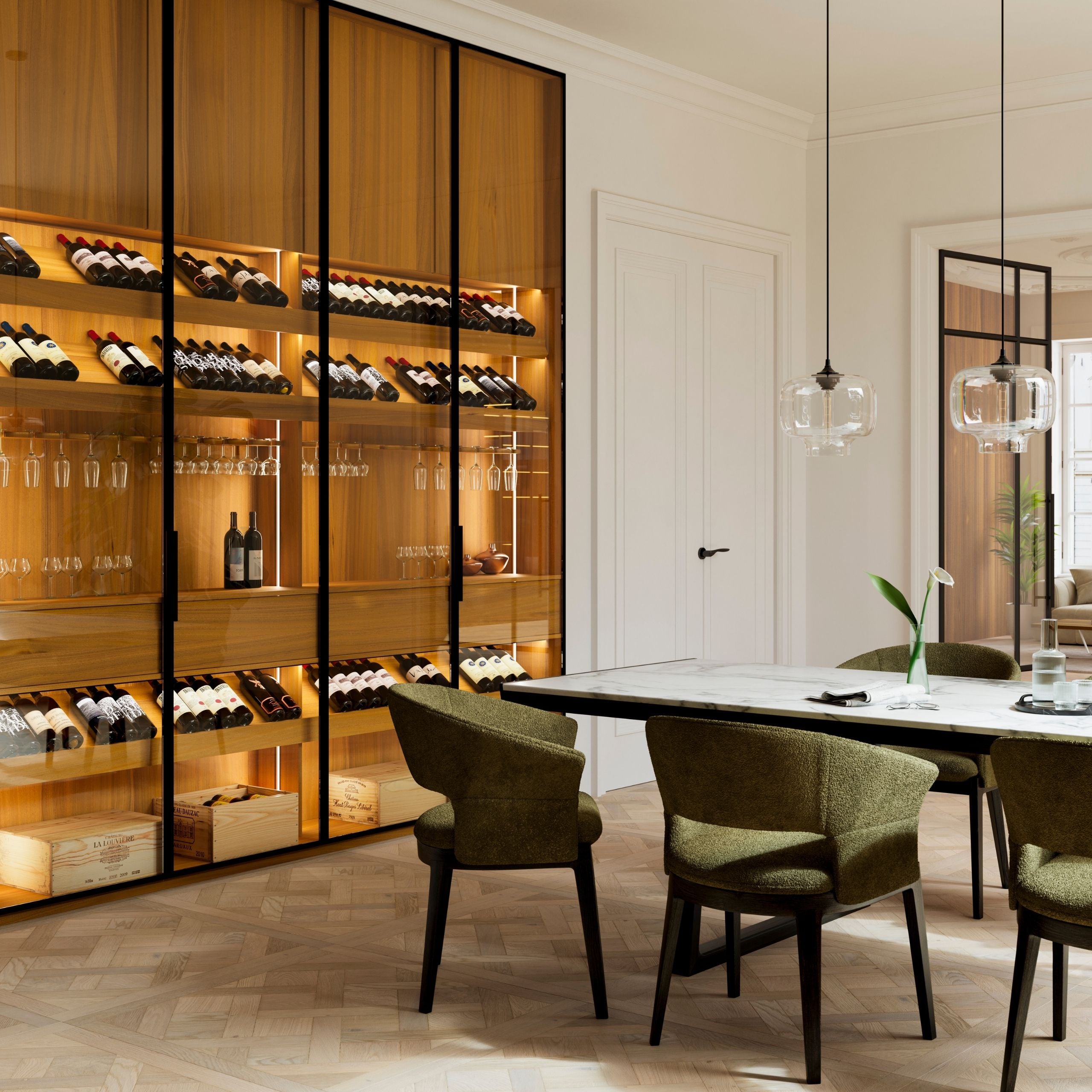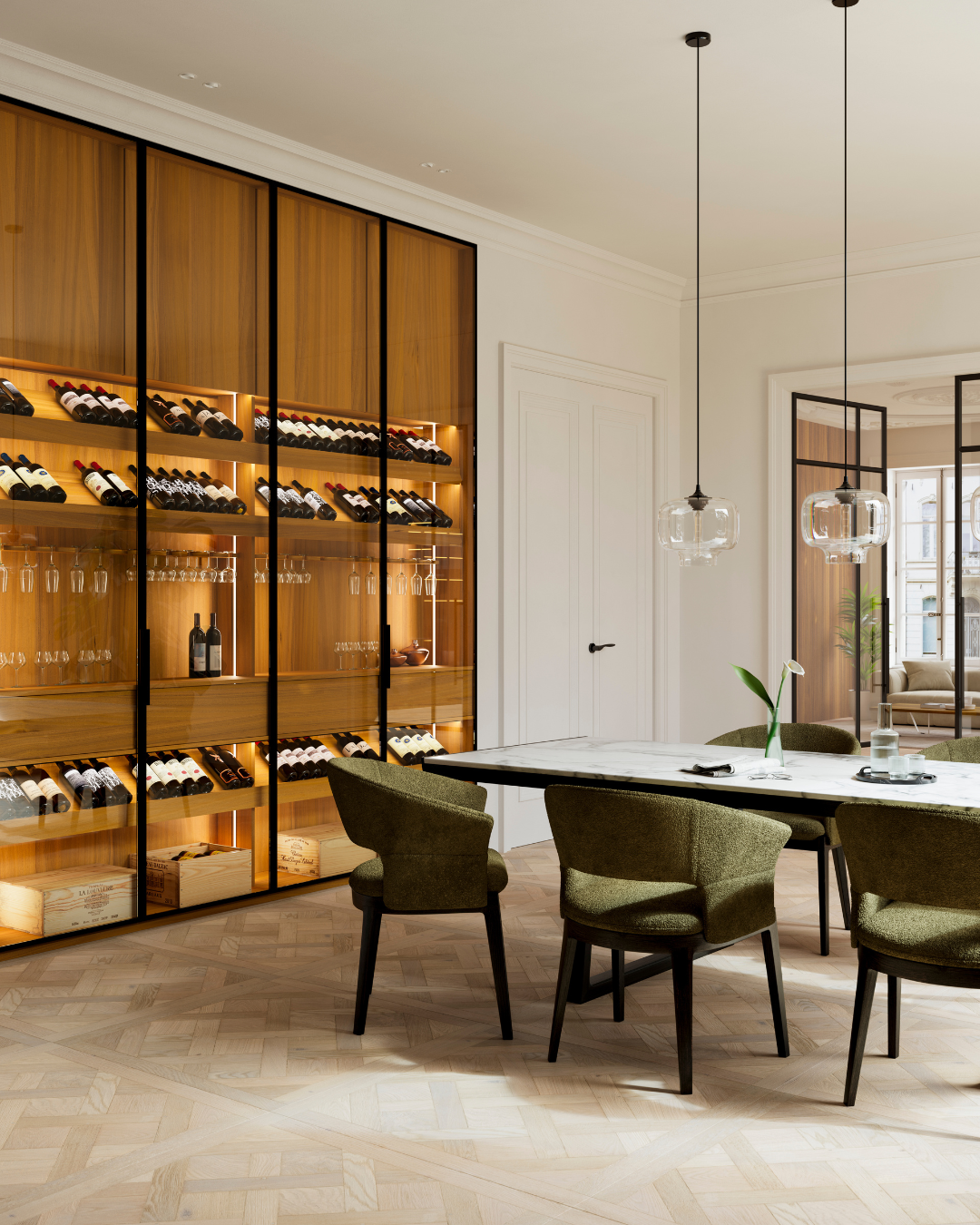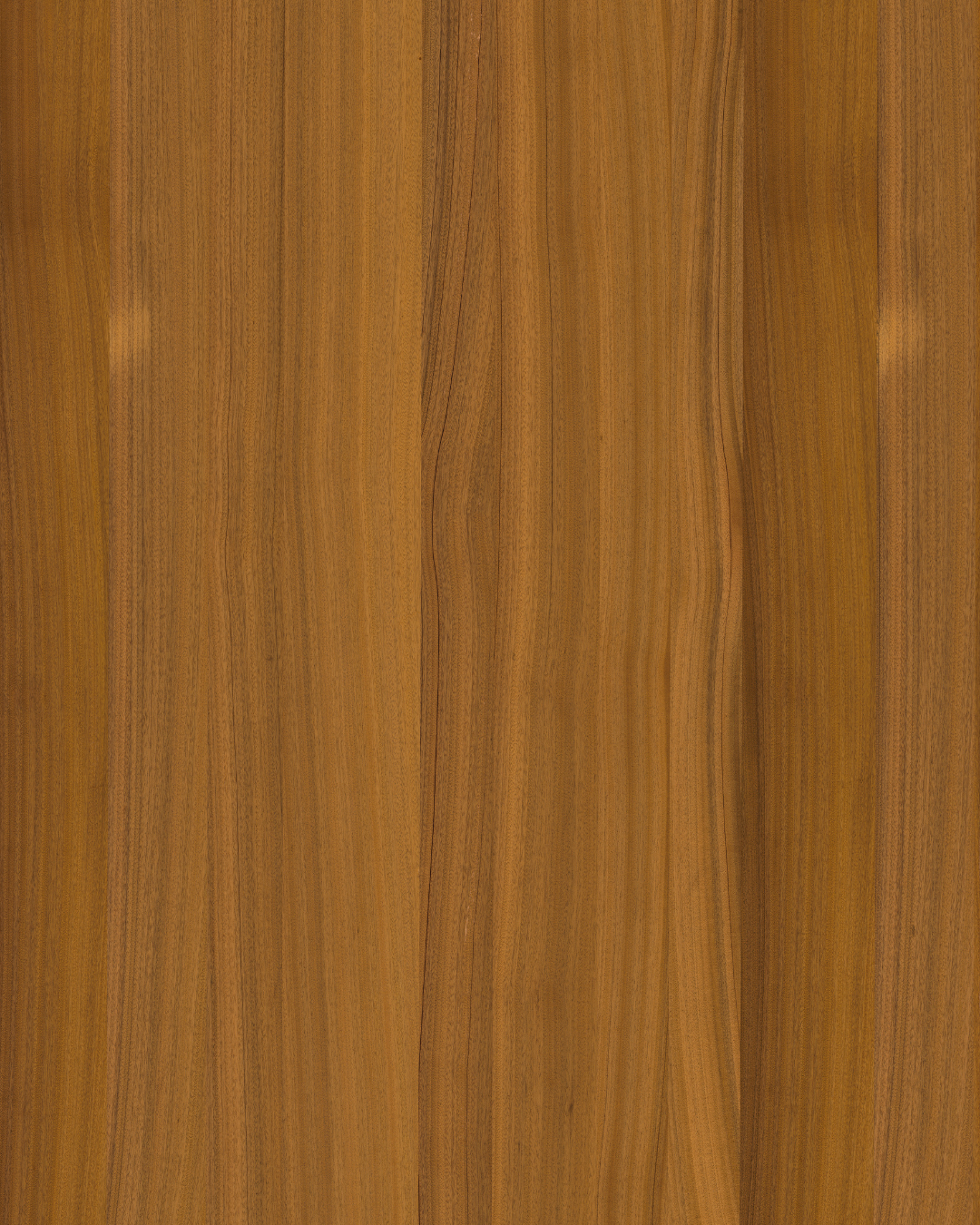- tag
Why wood
- date
19 February 2025
- collection
Nuxe

Dibétou, also known as African Walnut, is a hidden gem in the world of interiors. Whether you are discovering it for the first time or you have seen it featured in striking furniture or luxurious wall panelling, this wood has something special to offer.
If you’re curious about what makes Dibétou such a standout. You have come to the right place. Let’s explore four key facts that make this wood one of the most fascinating and versatile materials for interiors.
Let’s start with its roots—literally. African Walnut, known scientifically as Lovoa trichilioides, grows in the lush tropical rainforests of West and Central Africa, including countries like Ghana, Cameroon and the Democratic Republic of Congo.
Here is a fun fact: despite its name, African walnut is not a true walnut tree. It got its name because the wood resembles traditional walnut species, with its rich colour and fine grain. But don’t let that confuse you. African walnut is entirely its own thing.
So why do they grow in Africa? These trees thrive in humid climates, often growing tall and straight in the fertile rainforests. It’s this straight growth that makes the wood so prized for timber. The trunks can reach impressive heights, providing long, high-quality boards that are a dream for woodworkers and designers.
African walnut has a warm golden-brown colour, often with a subtle shimmer that catches the light. Its interlocking grain creates a unique texture and no two pieces are ever exactly the same.

African walnut’s story goes back centuries. In its native regions, it was traditionally used for local crafts and practical tools, thanks to its durability and workability.
When European traders arrived in Africa, they quickly recognised the potential of this stunning hardwood. By the 19th century, African walnut was being exported to Europe. Here it became a sought-after material for high-end furniture and decorative interiors. So, how did it become so popular?
Its big break came in the mid-20th century, during the golden age of wood veneered furniture. African walnut was celebrated for its luxurious appearance and ability to take a high polish. It became a popular choice for everything from dining tables to wardrobes, giving homes an elegant & natural feel.

African walnut has timeless appeal, which is why it’s still a favourite among designers, woodworkers and wood enthusiasts today. Its versatility makes it work in all kinds of styles, from modern minimalism to traditional grandeur. Here is why:
- Warmth and beauty: The rich tones of African walnut add warmth and character to any space. Whether used for wall panelling, furniture or flooring, its natural elegance makes a statement.
- Durability: This is not just about looks. African walnut is strong and long-lasting, making it a practical choice for high-use areas. It resists wear and tear, so you can count on it to hold up over time.
- Modern innovations: Today’s designers are finding fresh ways to use African walnut. Think feature walls, custom furniture and mixed-material designs that pair it with glass, metal or even concrete for a modern twist.

At Decospan, we have taken the natural beauty of Dibétou and turned it into a collection that’s perfect for modern interiors. Nuxe Imperial celebrates everything that makes this wood special, offering a range of wood veneers and panels that highlight its warm tones and striking grain patterns.
Imperial is all about versatility. Whether you are working on a sleek, contemporary space or something more traditional, African walnut fits the bill.
African walnut is not just wood. It’s a story. A story of tropical rainforests, skilled craftsmanship and timeless design. This wood has something to offer for everyone.
Ready to see it for yourself? Explore Nuxe Imperial and discover how African walnut can transform your next project. Whether you are drawn to its rich tones, striking grain, or sustainable appeal, one thing’s for sure: this is wood worth falling in love with.
